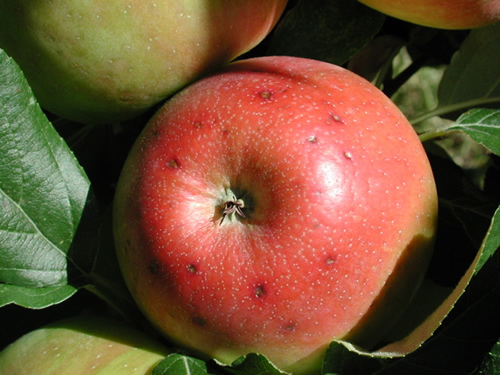
Honeycrisp apples are an important fruit crop in Pennsylvania and are the most valuable of all apples to the US. The Honeycrisp apple tree is a moderately vigorous tree with a somewhat spreading growth habit. Its apples are consistently ranked as one of the highest quality and best tasting apples in the University sensory evaluations. The apples are very attractive with skin colour 60 to 90 percent distinctive mottled red over a yellow background. Honeycrisp is a high value crop however it is susceptible to the Calcium disorder, bitter pit; the symptoms appear very late to the point of showing no visible signs at harvest but being covered in black pits within 2 days of storage.
Miller Chemical & Fertilizer Corporation (Pennsylvania, US) ("Miller") carried out extensive field trials using Plant Impact's InCa product on the Honeycrisp apple trees.
InCa demonstrated excellent control of bitter pit on the Honeycrisp apples. Not only was InCa as good as the standard treatment but it offered the unique advantage of using 8 times less calcium than standard treatments, providing considerable environmental benefit. In addition, InCa application increased calcium levels in the fruit by over two-fold, improving nutritional benefits and storage life. The Inca sprayed apples were also harvested earlier by 10 days as maturity was not delayed by the use of excess nitrogen in the standard spray programme. The growers QC manager also stated that the overall quality and skin finish, plus the way the fruit handled when it was picked was far superior to the standard treated fruit.
Based on the trial results all the Honeycrisp apple growers in the area have switched to the InCa programme.
InCa is based on Plant Impact's CaT technology which is a calcium delivery system for crops and plants. InCa is different to all other Calcium containing products as it is much more effective in delivering calcium and moves it from cell to cell by enhancing the plant's own cell wall transport system. It also has the added benefit of fewer applications and less inputs. In addition to combating stress, it strengthens cell walls, promotes healthy cell division and alleviates physiological problems. The end result is increased yields, better quality produce and longer shelf life.
